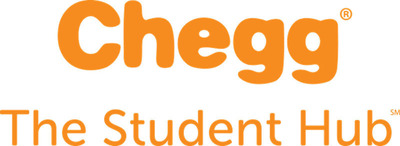TMCnet News
Seven Common Higher Ed Website Myths Busted By New Research from Chegg and mStoner, Inc.SANTA CLARA, Calif., Dec. 5, 2016 /PRNewswire/ -- "College-bound teens say that official university websites are their single-most important source of information. Our research reveals what they like — and don't like — on .edu websites. Though we talk with teens all the time, some findings surprised us." 
College and university websites serve many constituents, including current students, faculty, and alumni. But most institutions consider prospective students seeking admission to be the most important audience. With continued competition for a shrinking applicant pool and pressure to achieve ever-higher enrollment targets, coupled with a continued rise in digital and social media influence on students, college marketers' "low-hanging fruit" should be the channel they control — their ".edu website." Understanding what students like, dislike, and need can be challenging for marketers, because their target audience is media-saturated, accustomed to immediate gratification, and constantly changing its preferences for digital content consumption. This year's research explores just how important college websites are to college-bound teens, complementing last year's study, "Mythbusting Admissions," which explored teen perspectives on college admission tactics. Michael Stoner, president of mStoner, cautions higher education marketers to stay focused on making their institutions' websites easy for students to use rather than constantly adding new features. "It's easy to try to incorporate the lates shiny object into your website," says Stoner. "However, research shows teens are not as impressed with flashy tools when they are browsing your website as they are concerned with easily finding the important information that can help them navigate the overwhelming application process." Gil Rogers, director of enrollment marketing at Chegg, notes that a clear distinction exists between the college website, which remains an important channel for prospective students throughout the process, and other channels, such as college help sites and social media. "Students visit an .edu website to find the information they need, like admissions deadlines, majors, and cost," Rogers notes. "Students use social media and college ranking and review sites to find the information they want, like campus culture and fit." Based on research conducted in 2016 by Chegg and mStoner, this white paper explores:
The Mythbusting Websites research, conducted May 19 to June 8, 2016, asked college marketers about their perceptions of how teens use and value aspects of their websites, while concurrently asking teens about their use of college websites and preferences. More than 590 college professionals and 2,300 high school seniors provided feedback to this survey. Download the white paper: http://go.edu.chegg.com/mythbusting-websites About Chegg: About mStoner, Inc.: Logo - http://photos.prnewswire.com/prnh/20140116/NY47534LOGO To view the original version on PR Newswire, visit:http://www.prnewswire.com/news-releases/seven-common-higher-ed-website-myths-busted-by-new-research-from-chegg-and-mstoner-inc-300372770.html SOURCE Chegg 
|
